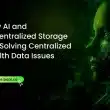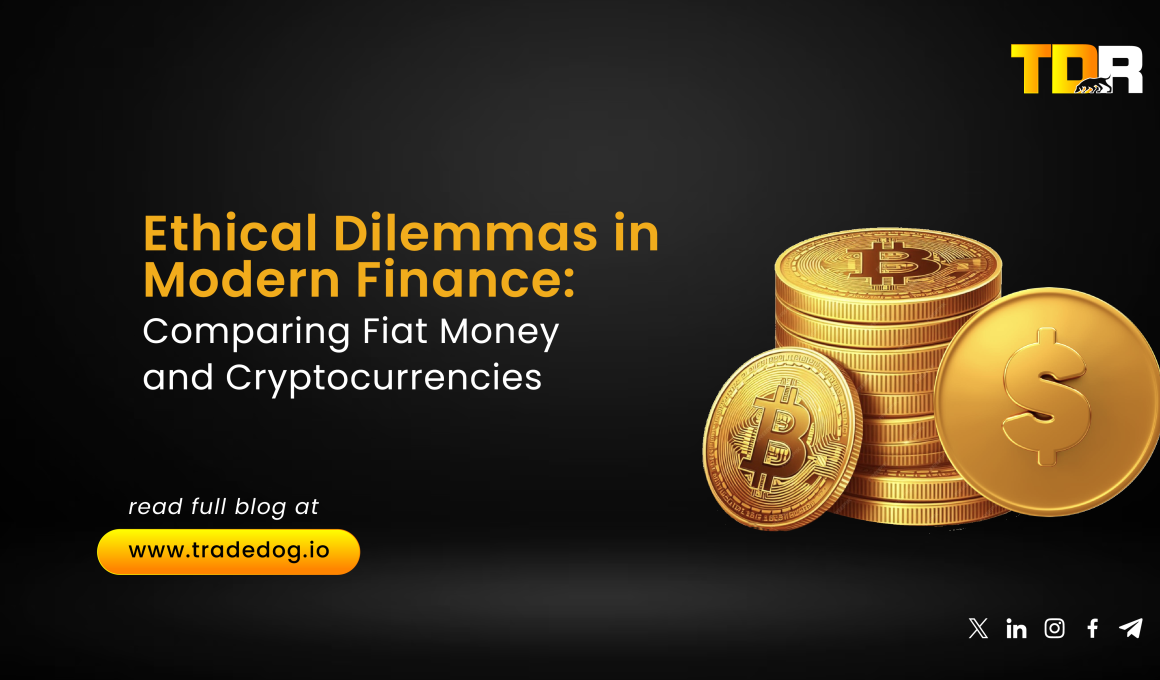Quick Links
The world of finance is constantly evolving, and with the rise of cryptocurrencies, new sets of ethical considerations have also emerged. At the heart of the ethical debate lies the very nature of money. Fiat currencies, the dominant form of money today, are not backed by any physical commodity like gold. Their value is based solely on the trust in the issuing government or central bank. Critics argue that this system allows for manipulation and inflation, disproportionately impacting the most vulnerable. Cryptocurrencies, on the other hand, offer a decentralized alternative. Secured by complex cryptography and distributed ledger technology (blockchain), they promise transparency and immutability. However, their anonymity can facilitate illegal activities like money laundering and cybercrime.
Ethical Concerns with Bitcoin
While Bitcoin has emerged as a revolutionary financial technology, its ethical implications raise concerns that need to be addressed. some of these key issues are:
- Environmental Impact: Bitcoin mining, the process of verifying transactions and creating new coins, consumes vast amounts of energy. This raises concerns about its sustainability, especially when the energy comes from non-renewable sources like coal.
- Price Volatility: The value of Bitcoin can fluctuate significantly, leading to high risks for investors. This volatility can also discourage its use as a mainstream currency, as its purchasing power can change rapidly.
- Potential for Criminal Activity: The anonymity associated with Bitcoin transactions can make it attractive for illegal activities like money laundering, terrorist financing, and cybercrime. This anonymity makes it difficult for law enforcement to track and prevent such activities.
- Lack of Regulation: Bitcoin’s decentralized nature makes it challenging to regulate. This lack of oversight can create risks for consumers and the financial system as a whole.
- Scalability Issues: The Bitcoin network can only process a limited number of transactions per second. This can lead to slow transaction times and high fees, hindering its ability to scale and become a widely used payment system.
Ethical Concerns with Fiat Currencies
- Central Bank Manipulation: Central banks have the power to manipulate interest rates and print money at will. This can lead to inflation, which erodes the purchasing power of a currency and disproportionately impacts those on fixed incomes.
- Lack of Transparency: The decisions made by central banks regarding money printing and interest rates can be opaque, making it difficult for citizens to hold them accountable.
- Risk of Devaluation: Fiat currencies are not backed by any physical commodity like gold. This makes them vulnerable to devaluation due to government mismanagement or economic crises.
- Limited Financial Inclusion: Millions of people globally lack access to traditional banking systems. Fiat currencies do not offer solutions for financial inclusion for the underbanked population.
Bitcoin vs. Fiat: Is There an Ethical Winner?
Deciding a clear ethical winner between Bitcoin and fiat currencies is a complex challenge. Both systems present distinct advantages and disadvantages, making it difficult to definitively say one is more ethical than the other. Here’s a closer look at the ethical arguments for each:
Bitcoin’s Ethical Appeal
- Transparency and Immutability: Bitcoin transactions are recorded on a public blockchain, making them transparent and tamper-proof. This reduces the risk of fraud and manipulation compared to the potential for off-the-book transactions in fiat systems.
- Limited Supply and Inflation Control: Unlike fiat currencies, Bitcoin has a capped supply of 21 million coins. This inherent scarcity helps control inflation and protects against the value erosion seen in fiat systems due to excessive money printing.
- Financial Inclusion: Bitcoin offers potential for financial inclusion for the unbanked population. It removes geographical limitations and allows individuals to participate in a global financial system without relying on traditional banking institutions.
Fiat’s Ethical Advantages
- Stability and Regulation: Central banks play a role in stabilizing fiat currencies and mitigating economic downturns. Regulations can help prevent illegal activities and protect consumers in the financial system. Bitcoin, with its decentralized nature, currently lacks these safeguards.
- Transaction Speed and Scalability: Fiat currencies facilitate faster and more scalable transactions compared to Bitcoin’s current limitations. This makes them more practical for everyday purchases.
- Established Infrastructure: Existing financial infrastructure supports fiat currencies, making them widely accepted and easier to integrate into daily life. Businesses and individuals have established trust and familiarity with using fiat currencies.
The Future of Ethical Finance
There is no clear winner in the ethical battle between fiat and cryptocurrencies. Both systems have their strengths and weaknesses. The goal should be to leverage the strengths of both. We can explore ways to make Bitcoin mining more sustainable while establishing regulations that encourage responsible use of cryptocurrencies. For fiat currencies, ethical considerations should guide central bank policies. Balancing economic growth with responsible money printing and fostering financial inclusion are crucial steps.
Ultimately, the “winner” in this ethical debate will be the system that best addresses the needs of society. This will likely involve a combination of both fiat and cryptocurrencies, working together to create a more equitable and ethical financial landscape for all. By fostering a dialogue about the ethical implications of both fiat and cryptocurrencies, we can create a more stable and equitable financial future. This future likely involves a coexistence of both systems. Through responsible regulation, technological advancements, and a focus on ethical principles, we can harness the potential of both fiat and cryptocurrencies to create a more inclusive and prosperous financial landscape.









